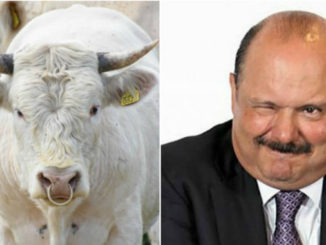
SANTIAGO – A cockroach native to Chile has been found to have a taste for flower pollen and could be helping to pollinate plants, according to a study published in Revista Brasileira de Entomologia.
Researchers say Moluchia brevipennis cockroaches get powdery pollen all over their bodies while consuming it, carrying that pollen to other flowers, possibly fertilizing them.
“People think of them as being in the streets or in the trash, but there are these wild cockroaches hanging out at the tops of tall flowers,” says study co-author Cristian Villagra, an entomologist at the Universidad Metropolitana de Ciencias de la Educación in Santiago, Chile.
A whopping 99 percent of the 4,500 known cockroach species thrive in wild places, playing vital roles in ecosystems ranging from the rain forests of Brazil to the deserts of Saudi Arabia.
But pollinating cockroaches are exceedingly rare: Only two species are known, one in French Guiana, the other on Malaysian Borneo. Then again, studies of wild cockroaches are also scarce, the researchers note in their paper, published recently in the journal Revista Brasileira de Entomologia.
Only 178 scientific papers have focused on this understudied group between 2000 and 2016, compared with tens of thousands of papers about more well-known insects such as ants and bees, according to the study authors.
For their research, Villagra and colleagues conducted the first-ever survey of M. brevipennis in various sites of Chile’s semi-arid Matorral region.
“Kids are not scared of cockroaches, but as they grow older and become adults, then they get freaked out by them,” says Villagra, who is also a National Geographic Explorer. “We want to give people an opportunity to learn about these insects.”

The team found that these cockroaches emerge at dusk to eat pollen from many native plant species, including evening primrose, and lay their eggs, or ootecae, only on a genus of bromeliad plants called Puya.
The entomologists suspect the cockroaches evolved to depend on native plants for shelter and food because it’s a safer bet than non-natives: Endemic flora can best endure the dry, harsh climate, he says.
Insects eat pollen – essentially, plant sperm – because it’s a “really energy-packed, nice tasty treat,” says University of Arizona entomologist Katy Prudic.



